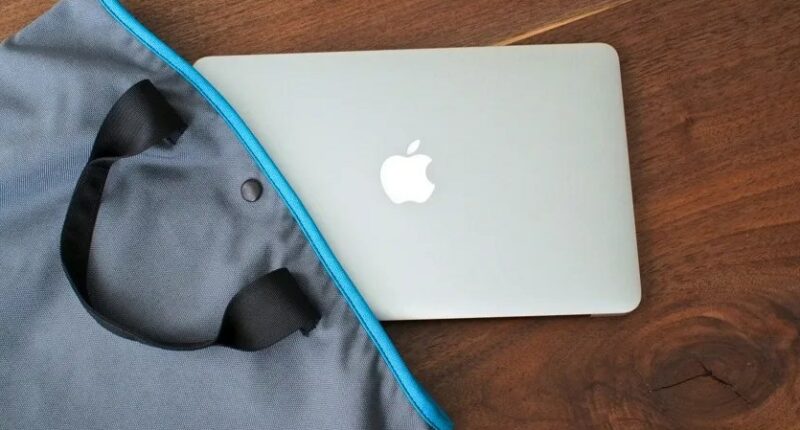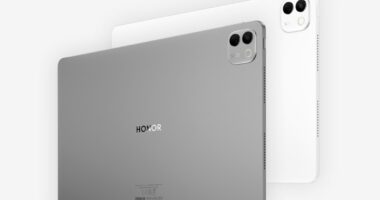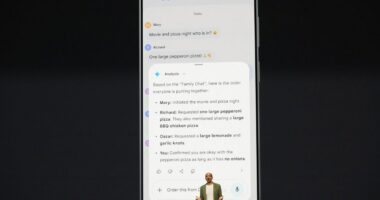Share this @internewscast.com
Speculation is swirling that Apple is developing a budget-friendly MacBook, potentially priced as low as $599. This move would mark a significant shift for the tech giant, which has historically catered to the premium segment of the market.
Apple is renowned for its commitment to design and quality, so it’s unlikely the company will simply repurpose MacBook Air components into a basic plastic shell. Instead, reports suggest that Apple is crafting a smaller laptop with a lower-resolution display and a completely new design, possibly powered by an iPhone processor.
There is speculation that this chip could be a variation of the A19 found in the latest iPhones, though earlier this year, analyst Ming-Chi Kuo suggested that Apple might opt for the previous year’s A18 chip for this project.
The concept of a compact, affordable laptop running on a low-power chip may sound familiar. Such devices, once known as netbooks, emerged during the late 2000s, a period marked by a shift towards web-centric computing.
Netbooks were characterized by their focus on portability, extended battery life, and minimal cost. The pioneer was the ASUS Eee PC, available in 7-inch or 10-inch models, and powered by Intel’s budget Celeron M processor. However, this processor proved too demanding for the Eee PC, leading ASUS to reduce its clock speed to just 630 MHz. For context, this was a time when CPU speeds were measured in MHz, not GHz.
Recognizing the trend, Intel developed the Atom processors specifically for netbooks, essentially countering the rising influence of ARM processors. These Atom chips later underpinned Intel’s efforts in tablets and smartphones. Apple’s current strategy, using its mobile A-series processors to create powerful laptop chips, appears to be a reversal of this past approach.
As we all know now, netbooks were not long for this world. A number of things helped spell their demise. For one, most of them were just never particularly good. And the ones that weren’t awful tended to be a bit pricer. Sure, you could get a 7-inch Eee PC for around $200. But something more capable, like an HP Mini 210 HD, could set you back about $385 in 2010, depending on the configuration. When adjusted for inflation, that’s a hair over $577. As the prices of regular laptops came down, this didn’t seem like a particularly good deal anymore.
But two of the biggest culprits are undoubtedly the emergence of the Chromebook and the iPad. (We’ll save the discussion of the Chromebook for another day.) The iPad was introduced in 2010, and it immediately started eating into the netbook’s market share. By 2012, tablets had overtaken netbooks, and by 2013, netbooks were effectively dead. Sure, some still lingered around, and you had a spiritual successor in the Chromebook, but the iPad helped kill off the netbook in swift and spectacular fashion.
Many of the things that one might have used a netbook for — browsing the web, checking email, shouting into the void of what was then called Twitter — were now being handled better by the iPad. And, when paired with a Bluetooth keyboard, the iPad was actually a decent productivity machine, so long as your expectations were low.
And so, the netbook vanished.
But this new, cheaper MacBook, at least on paper, sounds like it might be borrowing a bit from the netbook blueprint. Some people will just never be able to adjust to the workflow of a tablet and keyboard combo. So Apple might be giving them a proper laptop form factor.
While we don’t know what the screen size will be, we do know it will be smaller than the current 13.6-inch MacBook Air. That could mean 13.3 inches, but perhaps Apple will bring back the 12-inch format or even revisit the 11-inch realm of its smallest Air model. That’s inching into netbook territory.
Pair all that with a mobile-first SoC that will handle everyday tasks and browsing with aplomb, but certainly won’t cut it for heavier tasks like video editing or gaming, and you have something that sounds like the original pitch for a netbook if you ask me. Apple will obviously never call its new affordable MacBook a netbook, but maybe by avoiding the name, it can make them cool again.






